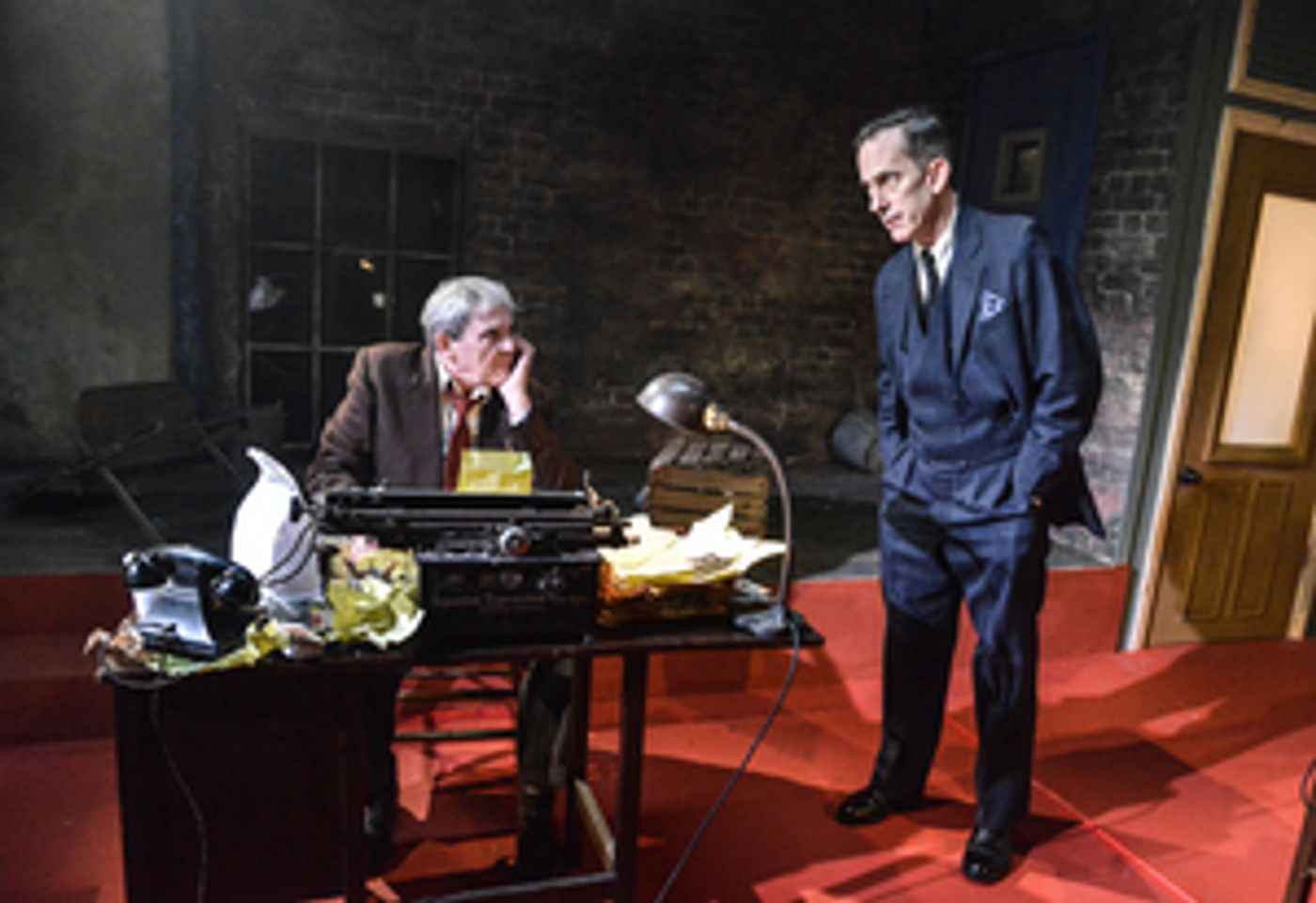Review: COPS, Southwark Playhouse

![]()
It's 1957 in Chicago. Four policemen, Stan, Rosey, Eulee, and Foxy share an office in-between stake-outs in a city slain by the mob and racial segregation. It's difficult, however, to find real themes in Tony Tortora's play among its misogyny, doughnuts, and Elvis. Sophomoric humour, endless conversations about menial and inconsequential matters, and tiresome boys-will-be-boys banter build a largely uninteresting piece of theatre.
The overly explanatory program of the show says that "It authentically evokes the world of Chicago policing in the late 50s and presents a strong dramatic situation". In over two hours (with a break, so make sure you grab that interval double G&T) Cops gives a vague idea of what a police precinct office might look like if there had been very little crime, the secretaries were utterly incapable of doing their job (the deaf one is left to man the phone, which is clearly something to be derided until they need her), and their purpose wasn't that big of a concern.
Andy Jordan is at the helm of an unfortunate performance that sees clunky accents, regrettable directing choices, and a flimsy script that says next to nothing. Once the characters finally open up and we get to see what lies beneath their tough no-nonsense attitude, the action quickly goes back to its ways and diverts the attention to the unintentionally intentional toxicity of the start. Roger Alborough (Stan), Daniel Francis (Rosey), James Sobol Kelly (Eulee), Jack Flammiger (Foxy), and Ben Keaton (Hurley) do their best with what they're given, but don't manage to save the day.
Overcompensating for the rest, Anthony Lamble creates a gorgeous, realistic set that, with two levels, doubles as the office and various surveillance locations. While the stage looks stunning in its detailing and drab vibe, Jordan's staging isn't that ideal and the audience's sightlines are a mess. It's a shame that Cops fails both in themes and visuals. Chicago in the 50s must have been a buzz of change, danger, politics, and excitement but Tortora doesn't introduce any of these ideas.
He name-drops Rosa Parks and Martin Luther King and we get to see that these characters are aware of their surroundings beyond their tiny existences, he also touches upon the scandal of corruption here and there but never actively takes a stand or decides to dive into any of the thematic lines he suggests. Ultimately, this excessively long, wordy, and stagnant piece isn't a satisfying picture of the time period it promises to paint.
Cops runs at Southwark Playhouse until 1 February.
Image courtesy of Robert Day
Reader Reviews
Videos

